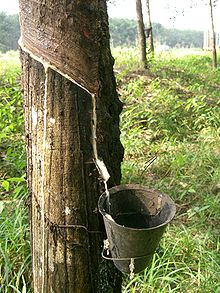Previously I talked about how sustainable busienss is a trinity including the business (really, it's financial side), environment, and social aspects. The first two are self explanatory for the most part, making money and doing right by the environment. But what about the social piece? What does
that mean?
Well, it terms of a sustainable business being social, or socially aware, means looking out for anyone, anywhere, by whatever your product or service touches or does. And not just the final product either. Social includes the whole lifespan of the product or service.
For example:
You sell... plastic pens.
 | | |
| ALL the colors! |
Awesome choice of a business. Pens are used by anyone and everyone and come in tons of colors. But how does a pen company be aware of it's social impact?
In the beginning the ingredients had to be harvested - the plastic pellets or whatnot needed to be purchased which therefore had to be melted down from oil (since, you are aware traditional plastic is made from oil.... right?) and the oil had to be mined and pumped and all that nasty messy stuff that comes from getting oil from the Earth's crust. Same goes for rubber (since, you have a plastic based rubber), but this also might include some actual rubber from the rubber tree.
 |
| It's a real tree. See? |
Rubber trees produce a natural latex - it's their sap. Just like we humans make maple syrup from maple sap we make rubber latex from rubber tree sap. But how is it harvested? Taking a generic approach for the sake of quickness, generally the trees are cared for and harvested by indigenous peoples, such as groups in Brazil.
How does this tie into to the social aspect of the pen company?
Well, knowing that farmers and family units who both take care of,and farm this material are treated well, receive a living wage, and are not forced into rubber-tree-farming-slavery is important. The better relationship you have with your suppliers often results in a better quality product, as well as an easier time negotiating future wants and needs.
The people who work on the rubber tree farms then live better lives, feel more connected to the process as a whole, and can be proud of the work they do.
It's win-win for everyone.
There are tons of companies who look out for and promote the well being of their supply chains/ingredient sources. Coffee companies are a prime example of social well being. Same with wood harvesting and cotton. So next time you are looking to see how well a company goes about practicing sustainability, look into how they treat their suppliers. Didn't Mom always say to look at how your significant other treats their parents as a sign to how they might treat you? Same idea. A business who treats their suppliers right will treat their customers right.







